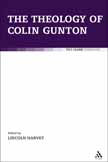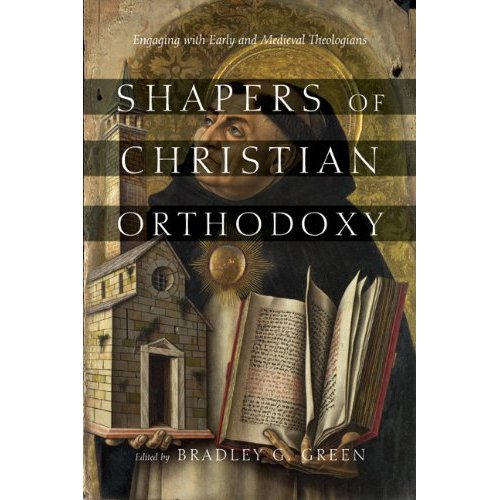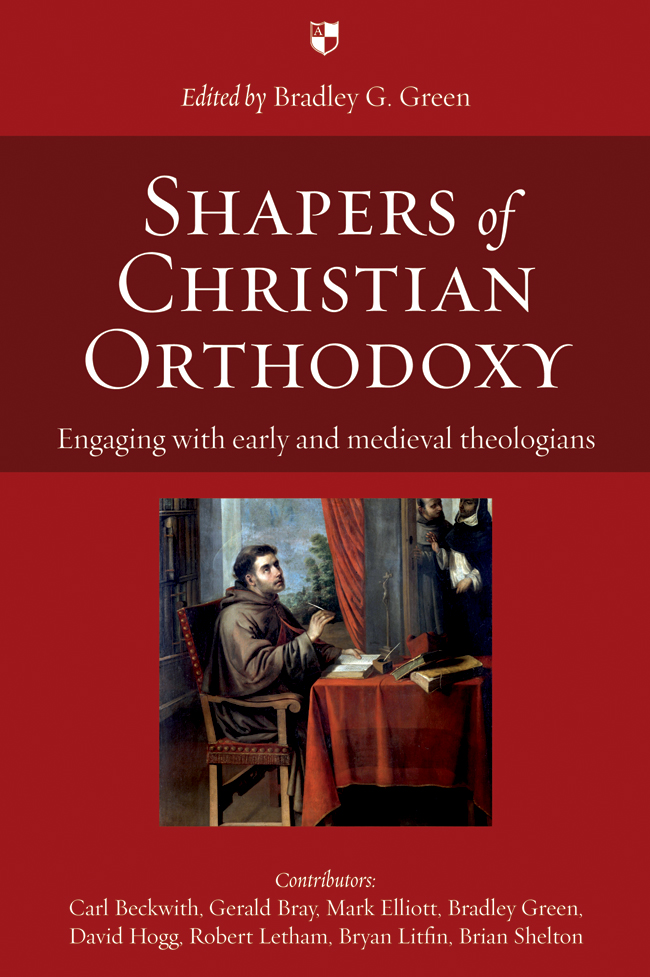
The Theology of Colin Gunton

Colin Gunton (died in 2003) was a prolific and significant British theologian. This new book, The Theology of Colin Gunton (T&T Clark, 2010) is a collection of essays exploring his thought from various angles. I was honored to be included in this collection. I wrote an essay which was not from my dissertation (on Gunton), but was a development of some things I began to get at right at the end of my dissertation. My chapter, "Colin Gunton and the Theological Origin of Modernity," summarizes and criticizes Gunton's understanding of the nature of modernity. Thanks to the editor, Lincoln Harvey, for including me in this collection and for doing a great job editing.
- Details
- Category: Recommended Reading Recommended Reading
- Published: 08 August 2010 08 August 2010
- Hits: 4006 4006
Shapers of Christian Orthodoxy available in the US

It was a pleasure to have my book, Shapers of Christian Orthodoxy: Engaging with Early and Medieval Theologians published with InterVarsity Press--United Kingdom. And now it is an honor that InterVarsity Press--US has decided to publish the book in the US. It is currently available for pre-order with Amazon. My goal in this book is to introduce readers to key early and medieval theologians (second to thirteenth centuries). Also, I have the goal of asking how evangelicals might benefit from understanding and reading these older theologians. If you read it, I hope you enjoy it.
- Details
- Category: Recommended Reading Recommended Reading
- Published: 05 August 2010 05 August 2010
- Hits: 3657 3657
Introduction to Shapers of Christian Orthodoxy

I have attached below the Introduction to a book I have edited: Shapers of Christian Orthodoxy. In this introduction I walk through the goals of the book and give a sense of my own theological commitments and goals that shaped the book. Shapers of Christian Orthdoxy has been published by IVP-UK, and by IVP-US. If you read it, I would love to hear your feedback.
- Details
- Category: Recommended Reading Recommended Reading
- Published: 17 July 2010 17 July 2010
- Hits: 3844 3844
Sharing the Gospel at the Society of Biblical Literature
An interesting twist on the situation with Ronald Hendel and the Society of Biblical Literature (see my earlier post at bradleyggreen.com). The SBL leadership decided to respond to Ronald Hendel’s essay,“Farewell to SBL: Faith and Reason in Biblical Studies” (in the July/August 2010 issue of Biblical Archaeology Review). In Hendel’s article he claims that the SBL has removed the term “critical” from its moniker/motto, supposedly because the SBL is trying to curry favor with evangelicals and fundamentalists, and hence boost membership.
Another of Hendel’s claims is that at some SBL meetings some members have tried to share the gospel with other persons. Well, the SBL will have none of that. The “claim” and “clarification” below, from a letter sent to SBL members (yes, I am a member), makes clear that the SBL is a very sensitive and tolerant organization and by all means will not tolerate any lack of “tolerance.” Read: there shall be no attempt to “proselytize” anybody at an officially sanctioned SBL event.
So, be on the watch at the next SBL meeting, because “proselytizing activity is neither welcome nor permitted in SBL-sponsored events and publications and is inconsistent with the SBL’s core values . . .” Make sure and quickly contact your nearest SBL staff member if you see anyone trying to share the word of life, the precious gospel, with any other person.
Here is the language from the SBL’s e-mail to SBL members:
'Claim: The current SBL environment, which includes instances of proselytizing activity as well as veiled theological denunciations of certain individuals or groups, is hostile to a critical approach to biblical studies.
Clarification: Although SBL invites vigorous discussion of all relevant topics, proselytizing activity is neither welcome nor permitted in SBL-sponsored events and publications and is inconsistent with the SBL’s core values: accountability, inclusiveness, collaboration, leadership in biblical scholarship, collegiality, productivity, commitment, responsiveness to change, communication, scholarly integrity, efficiency, and tolerance. Consequently, any instances of proselytizing activity should be reported to SBL staff. Further, we are unaware of any RBL reviews that even “hint” that anyone is “going to hell.” If any SBL member can point us to such a review, we will immediately remove the review and disavow its sentiments.'
In short, the prophets, the apostles, Paul, and Jesus would all be very unwelcome at the world's largest society of academics committed to the study of the Bible.
- Details
- Category: Recommended Reading Recommended Reading
- Published: 22 June 2010 22 June 2010
- Hits: 3645 3645